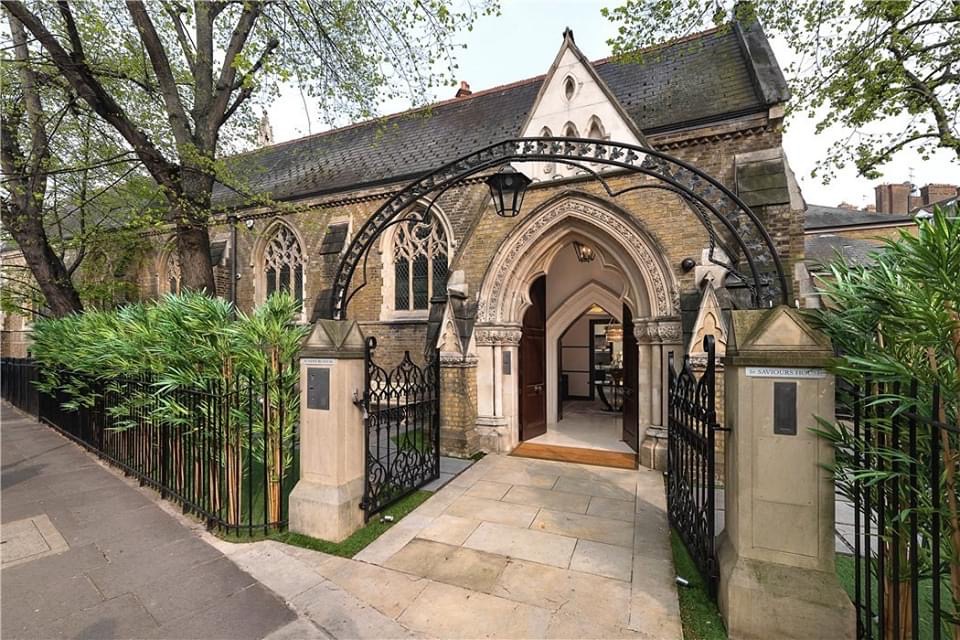Scripture for the fifth Sunday of Easter:
Acts 7.55-60; Psalm 31.1-5*; 1 Peter 2.2-10*; John 14.1-14
* not used for online worship

Saint Saviour’s is a former church, built in 1838, a Grade 2 listed building, that has nevertheless been converted into a luxurious home with 7 bedrooms, 7 bathrooms, and much else besides – available for £44M.
If one of the followers of Jesus who heard him speaking of a house with many dwelling places could have seen Saint Saviour’s, they might think they had already arrived at Jesus’ mansion – it would have been far beyond the limits of their wildest imagining. Generally speaking, the problem with human imagination is that it tends to be bounded by the limits of our experience to a large extent, no matter how far we let it range.
Jesus spoke of ‘many dwelling places,’ but also said that ‘No one comes to the Father except through me.’ Does this mean that there might be more than one way to encounter Jesus? Should this even be a surprising concept? It seems to be a statement of abundant, open-armed welcome.
As followers of Christ, we need to hear both statements together. Whatever we may or may not believe about religious diversity, we need to remember that we do not own Jesus. One of the shadier temptations of Christian faith is to presume that our experience of Jesus is the only ‘way, truth and life.’ That road leads by way of smug self-satisfaction to the delusional destination of spiritual superiority and the temptation to judge and even condemn others. In reality, just because we have experienced the invitation and presence of Christ in one way, it does not preclude someone else having a different experience of Christ. We should not let the limits of our imagination narrow the fact that Christ can have many faces in our world.
Lack of imagination and failure to appreciate the idea that God will not be constrained by human boundaries and rigidity cost Stephen his life, as the first Christian martyr. In our own time, like those who could not stomach the Christian gospel as proclaimed by Stephen, there will be some who find their presuppositions and bounded beliefs challenged – and when people find their security challenged they will act defensively and in the ultimate case, turn to violence.
Understanding our salvation history and the stories that found our faith takes the focus off us and allows us to put it on God, and God’s will prevailing. It gives us the opportunity to learn from the past, to live in a meaningful present, and to envisage a future with hope.
“We may be tempted to fixate on the problems of the present, but, if we are grounded in the past, we have a broader perspective and a foundation for hope … All of our holy days are remembrances of the past that emphasise our hope for the future.”
Elizabeth Stice, Sojourners web. https://sojo.net/articles/turning-past-help-us-through-present
The balance required is to take the past and learn from it – and to allow it to illuminate a future with hope, while not allowing it to limit that future for which we hope. Jesus invited his followers to rest in the hope of a kingdom with many mansions beyond their imaginations. We are supposed to be constructing that kingdom, one human life at a time. Perhaps we could spare a thought to applying Jesus’ words not just to some heavenly afterlife, but to a hopeful existence in this life that is more evenly shared.

Comments are closed.